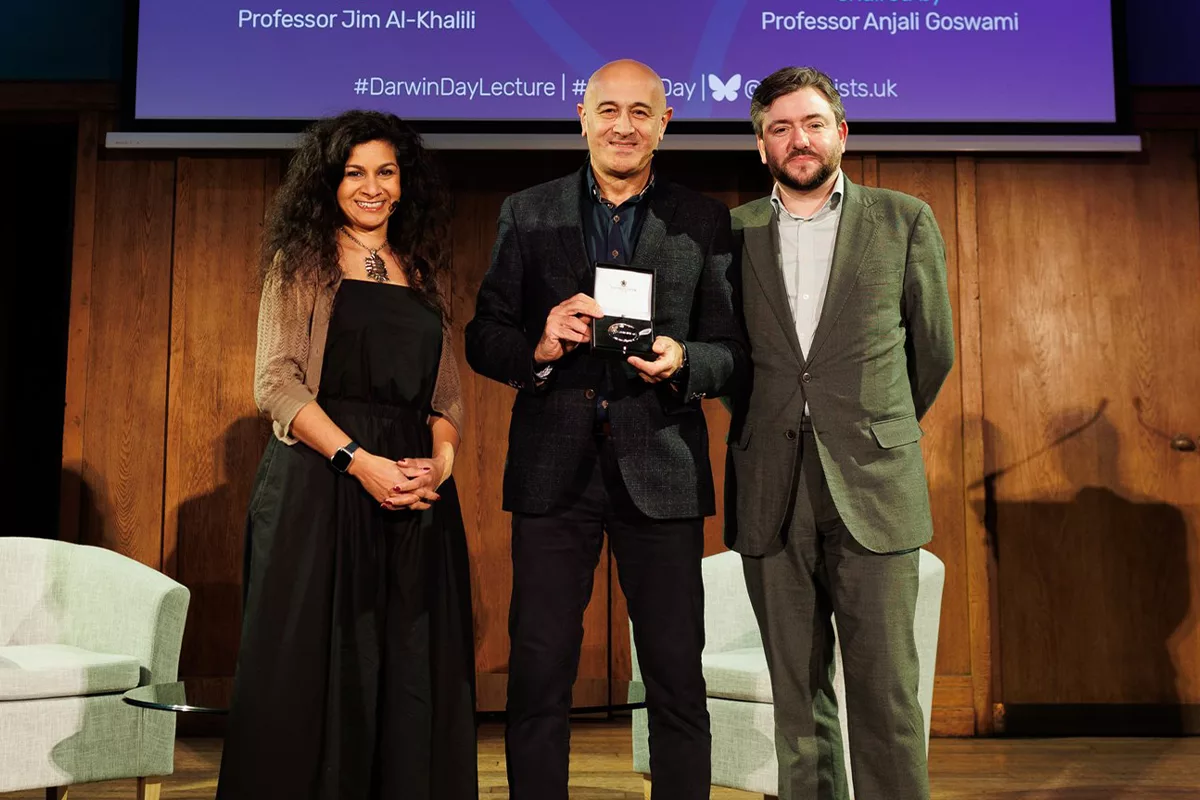
On Friday night, Humanists UK hosted the 2025 Darwin Day Lecture ‘The Evolution of the Human Brain,’ delivered by physicist, author, and broadcaster Professor Jim Al-Khalili.
The event explored the history of brain evolution, from the emergence of neurons to the complexity of human cognition, and looked ahead to the implications of artificial intelligence on human identity. The event was chaired by paleobiologist and Humanists UK patron, Professor Anjali Goswami.
The story of the human brain
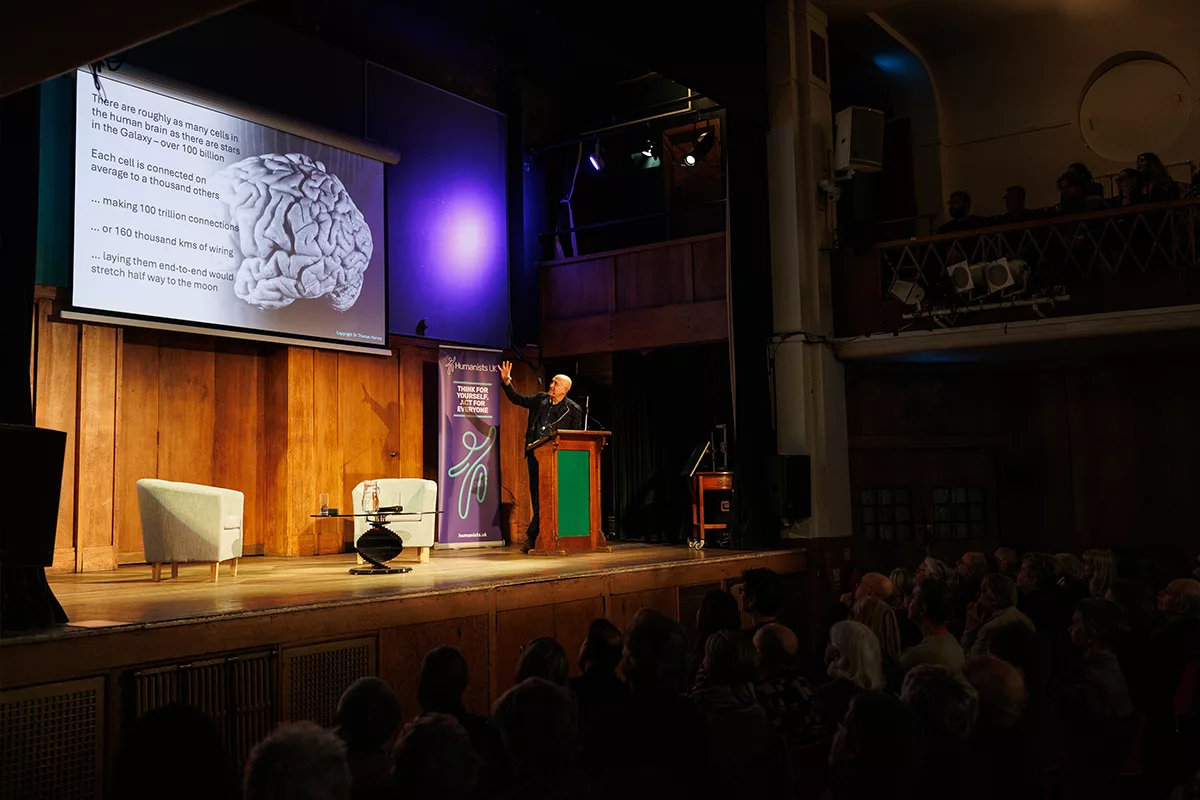
Jim traced the brain’s evolution from its earliest origins to the complexity of human cognition. A major turning point was the Cambrian Explosion (530 million years ago), which saw a surge in life’s diversity and the emergence of the first vertebrates – with backbones, spinal cords, and early brains.
As life moved onto land, ‘visual processing’ adapted to new environments, and mammals evolved larger, more complex brains. Fossils of Morganucodon, a tiny shrew-like creature, reveal early signs of the neocortex, the region responsible for ‘problem-solving and higher-order thinking’.
A key leap came with social intelligence. As primates formed larger groups, their brains had to process complex social dynamics, a shift that shaped Homo sapiens’ cognitive abilities
The roots of human intelligence
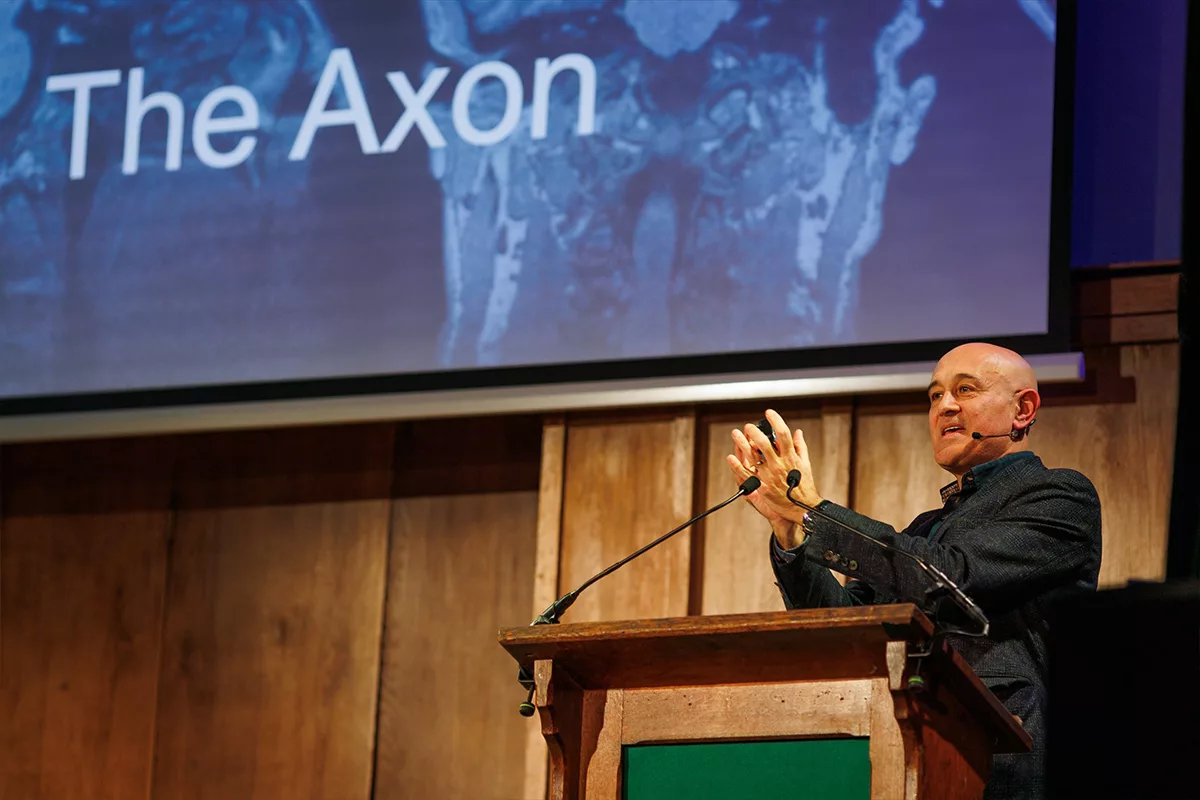
For Homo sapiens, our evolved social intelligence became a defining trait. Unlike other primates, humans developed sophisticated forms of cooperation, long-term alliances, and the ability to teach and learn from one another. The emergence of language allowed for the sharing of knowledge across generations, enabling cultural accumulation and innovation.
This social complexity also drove the development of empathy, moral reasoning, and theory of mind–the ability to understand that others have thoughts, feelings, and perspectives different from one’s own. Humanity’s pronounced cognitive abilities not only strengthened group cohesion but also provided a foundation for art, storytelling, and abstract thought, setting Homo sapiens apart from other species.
In essence, the evolution of social intelligence didn’t just enhance survival; it fundamentally shaped the way humans think, interact, and build civilizations.
Artificial intelligence and what makes us human
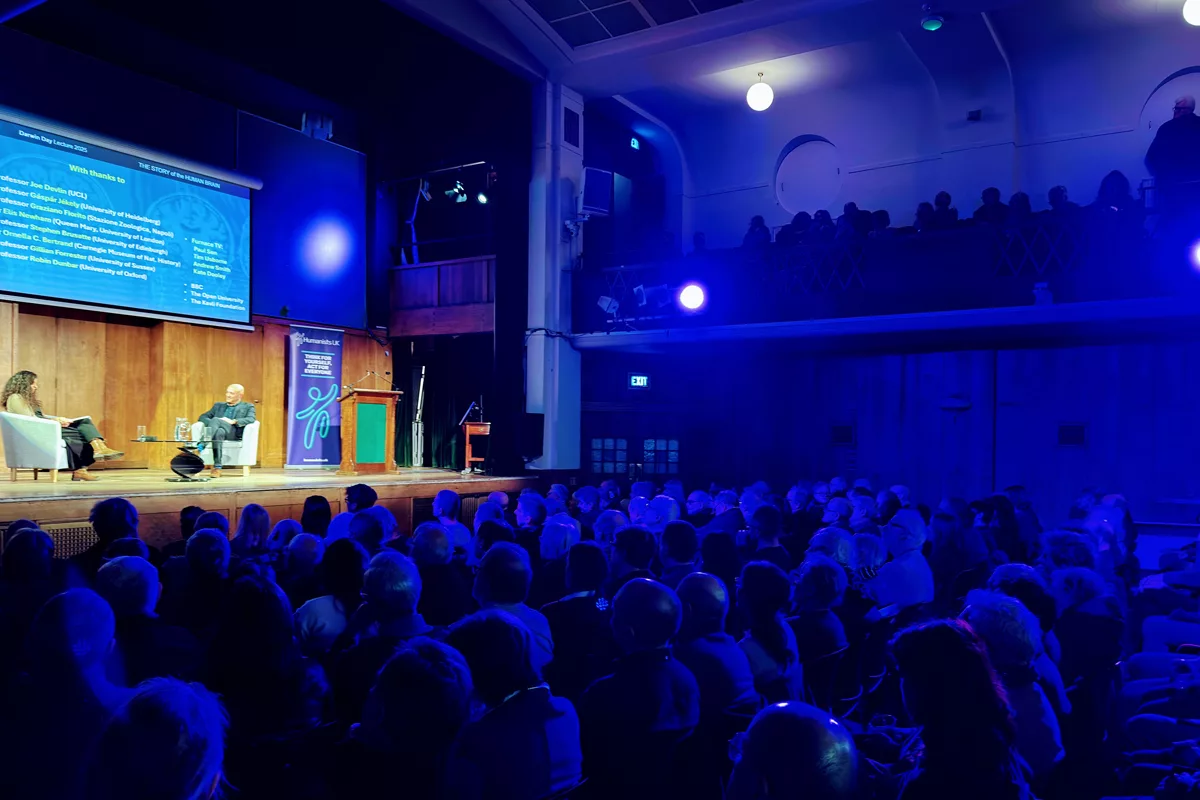
Whether artificial intelligence (AI) could ever develop sentience – just as brains have evolved over millions of years – is one of the biggest questions facing the fields of philosophy, neuroscience, and machine learning . ‘If it is purely a matter of information processing, then in theory, a sufficiently advanced AI could develop a form of awareness…
‘There’s no magic involved in creating consciousness. However, even if I were to become conscious, there’s no reason to assume it would think like a human’, said Jim: ‘Our cognition is shaped by evolution, emotions, and survival instincts whereas AI is built on entirely different principles.’
‘Speaking as a humanist, what truly defines our humanity is our relationships, the societies we form, our shared memory, and our shared cultures. It is far more than the number of neural connections in our brain — it is unique beyond just its ability to process data. One day, AI may replicate aspects of this, but that doesn’t make it human…
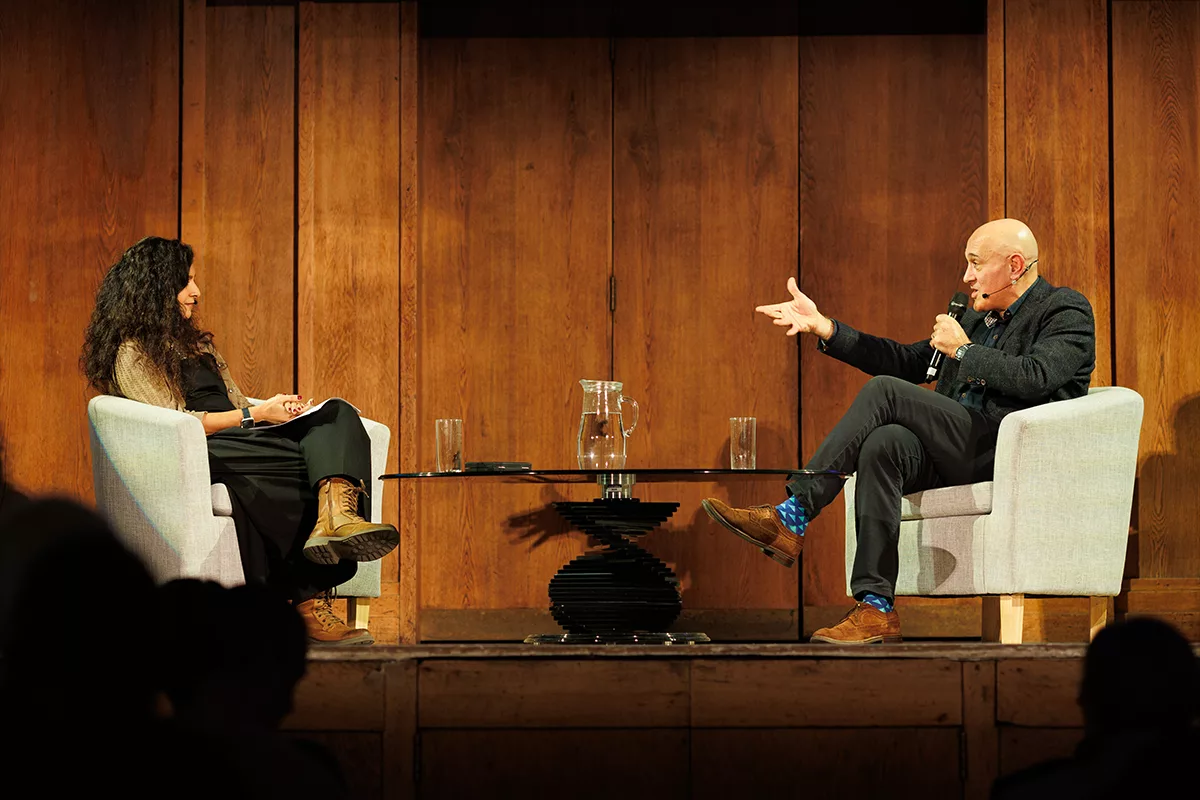
‘Altruism, compassion, empathy… are evolved. These are traits that define us as human… and of course, speaking as a humanist, we don’t need god to be good. These are essential mechanisms for human cooperation and social cohesion.’
After a lively Q&A, Anjali Goswami awarded the 2025 Darwin Day Medal to Jim Al-Khalili. In the citation, Goswami recognised Jim for his career in ‘advancing public understanding of science through acclaimed broadcasts and books,’ and ‘making exciting scientific advances and insights into our universe accessible and engaging,’ and for his campaigning and advocacy of humanist causes.
Humanists UK Chief Executive Andrew Copson said:
‘Jim has made an extraordinary contribution to public understanding of science, bringing complex ideas to life with clarity and insight. His exploration of intelligence — from the evolution of the human brain to the rise of AI — raises profound questions about what it means to be human. It is a privilege to have Jim as our 2025 Darwin Day Medallist, in recognition of his dedication to science, education, and humanism.

Notes
For further comment or information, media should contact Humanists UK Director of Public Affairs and Policy Richy Thompson at press@humanists.uk or phone 0203 675 0959.
See our other upcoming events.
Read more about our Annual Lectures and Medals Series.
Humanists UK is the national charity working on behalf of non-religious people. Powered by over 130,000 members and supporters, we advance free thinking and promote humanism to create a tolerant society where rational thinking and kindness prevail. We provide ceremonies, pastoral care, education, and support services benefitting over a million people every year and our campaigns advance humanist thinking on ethical issues, human rights, and equal treatment for all.
